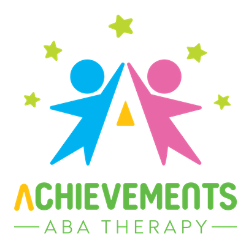Mastering 97155 Supervision: Tips for BCBAs
Introduction:
One of the most crucial roles of a BCBA is to supervise RBT through supervision sessions. This provides opportunities for skill development and feedback.
Here are simple yet effective tips to maximize the effectiveness of your supervision sessions.
Prepare with Purpose:
Before each supervision session, thorough preparation is key.
Review your client’s profile in your data collection portal, including SOAP notes, graphs, and behavior plans. Identify areas that require attention, and check for mastered goals to advance to the next step. Analyze behavior trends and adjust the behavior plan accordingly.
Prepare a list of clear questions based on these graphs to discuss with your RBT, and anticipate behaviors from your client during the session. Focus on graphs showing decreasing trends, and prepare strategies to facilitate improvement
Structured Agenda
Begin each supervision session with a structured agenda.
Create a clear plan outlining topics that you will cover. This will ensure that important areas are covered. This will also ensure that time is used efficiently.
Case Review
Allocate time to review the case where the supervisee is providing ABA services.
Talk to your RBT about how the client is progressing, the behavior plans in place. Discuss the methods used for data collection and any challenges encountered.
Behavior Analytic Principles Discussion
Engage in discussions with your supervisee about ABA principles and research findings.
Discuss literature that is relevant to the client. This helps deepen your supervisees understanding. It also can promote evidence-based practice.
Skill Development
During your supervision session, pinpoint specific skills that the supervisee needs to develop or strengthen.
Offer chances for role-playing and modeling. Provide feedback as well. Help your supervisees gain proficiency in areas such as functional behavior assessments, crafting behavior plans and analyzing data.
Ethical Considerations
Address ethical dilemmas or concerns that arise in the supervisee’s practice. Utilize real-life scenarios to delve into ethical decision-making and apply the Professional and Ethical Compliance Code for Behavior Analysts.
Feedback
Offer constructive feedback on the supervisee’s performance, communication skills and professional demeanor.
Encourage self-reflection and a growth mindsets to to foster continuous improvement.
Supervision Models
Integrate different supervision models.
Incorporate behavioral skills training, competency based supervision or self-directed learning. This can help accommodate the diverse needs and learning styles of supervisees.
Resource Sharing
Share with your supervisees relevant resources.
This includes articles, books, webinars or processional organizations. This will support continuous learning and professional growth.
Documentation and Record Keeping
Highlight the importance of precise documentation and record-keeping. ABA is a science based on data, and it is critical that all staff take meticulous care to ensure accuracy in data collection.
Review documentation requirements and maintain thorough records. Integrate fidelity checks to ensure adherence to protocols and procedures.
Cultural Competence
Address issues related to cultural competence and diversity in behavior analysis practice.
Discuss strategies for effectively collaborating with individuals from diverse backgrounds and communities.
Reflections and Closure
Allocate time at the end of each supervision session for reflection and closure.
Recap key insights, outline action items and follow-up tasks to ensure accountability and consistency between sessions.



















